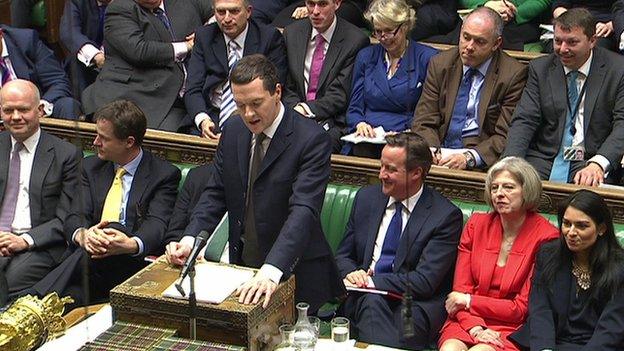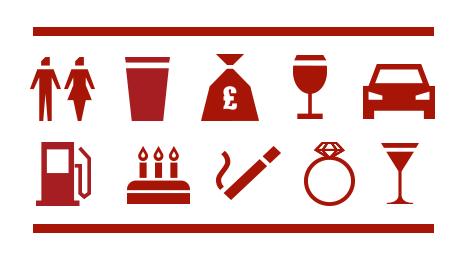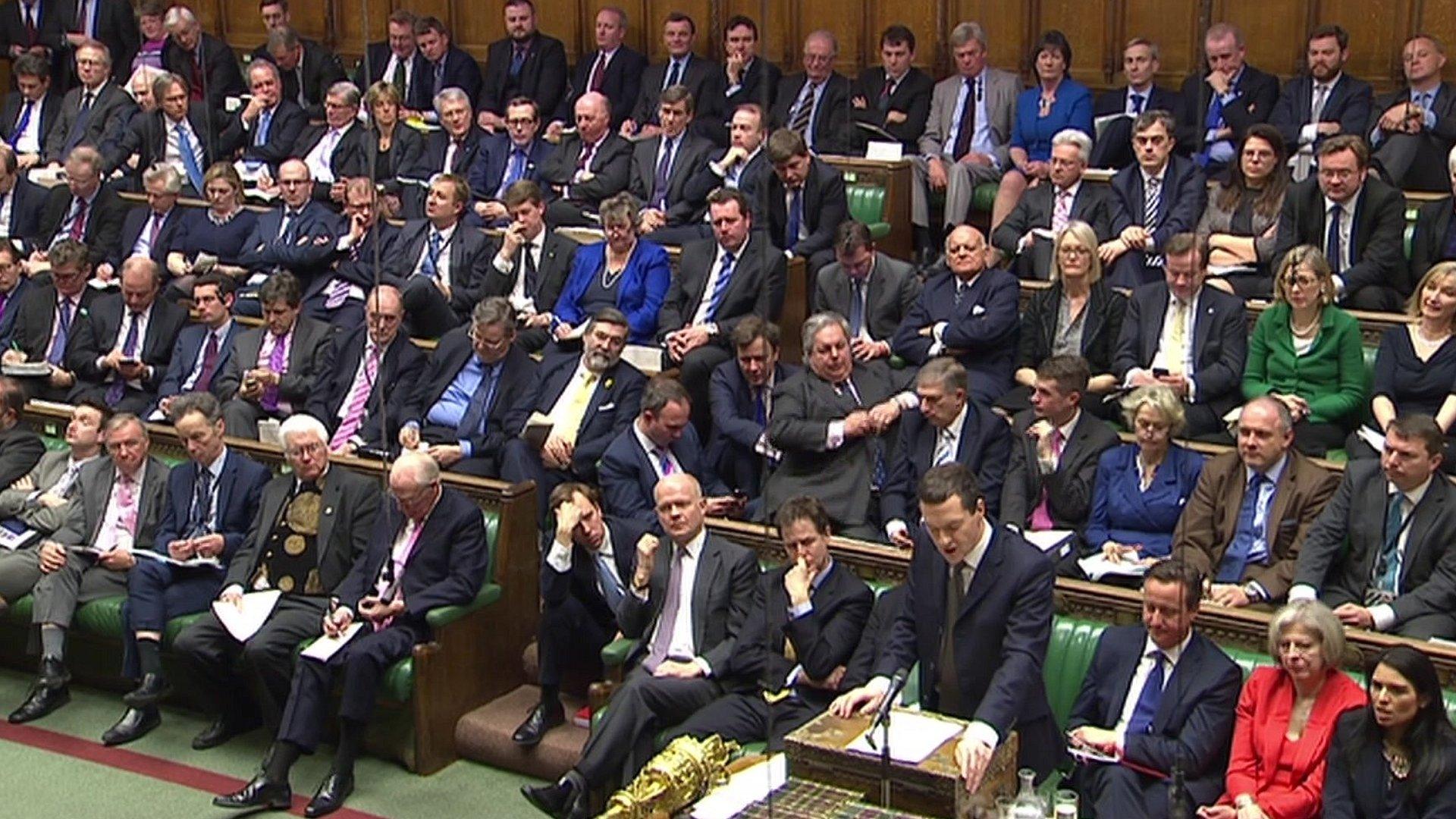Budget analysis: Osborne offers election sneak preview
- Published

When Gordon Brown was the chancellor, reporters like me would add up how many times he used his favourite word - "prudence".
For George Osborne today, there was another word that both leapt out and summed up what the Budget was all about.
By my calculations, he used it five times in the first two-and-a-half minutes.
That word: "Choose."
Which is just what the country has to do in 50 days' time - polling day.
He even used the phrase "we choose the future".
Literally, it's something we all have little option but to do.
Rhetorically, it amounted to this: it's them (Labour) or us.
Attack lines
Think of today as the equivalent of you or me being able to turn up at a job interview a day early - and have a crack before anyone else at trying to get the gig.

Users of the BBC News app tap here, external for the Budget Calculator.
That's the opportunity the chancellor had, to try to translate an increasingly perky-looking economy into votes for the Conservatives in May.
So that is why very early on there were direct, specific references to those he needs to court: "This Budget backs... savers and pensioners... the self-employed, the small business-owner and the homebuyer."
He also aimed to close off the attack lines the Tories anticipate from Labour during the election campaign, particularly over the scale of cuts to come.
Ever since the Autumn Statement in December, the chancellor's mini Budget, Labour has regularly been quoting the independent Office for Budget Responsibility's projection at the time.
The OBR said the spending plans Mr Osborne set out then would see "government consumption of goods and services" - or government spending - fall to its lowest level, as a share of national income, since 1938.
Biscuit tin
But today the chancellor said the squeeze on public spending would end a year earlier than previously announced and it would rise in line with economic growth in 2019/20 - meaning, as he put it, "state spending as a share of our national income the same size as Britain had in the year 2000".
Or, when Tony Blair was prime minister.
And, sure enough, those referees the OBR agree. On page five of their document published today, it says: "Public spending as a share of GDP no longer falls to a post-war low in 2019-20."
So what else was in there?
The electoral biscuit tin was out, and a few jammy dodgers offered to marginal constituencies, name checked here and there.
Burton, Keighley, Castle Point, Norwich North - they all got a mention.
So what did Labour have to say in response?
'Glaring omission'
It is arguably the hardest day in the job for a Leader of the Opposition - being forced to reply to something he has only just heard, reliant on scraps of paper being handed to him in the chamber, the brain waves of his backroom team holed up somewhere nearby.
In essence, and as you would expect, he wanted to play what he sees as Labour's greatest hits in the election campaign: the NHS and the potential scale of cuts to come under the Tories.
Those cuts, he insisted, would still be "extreme" under the Conservatives.
Of course, there would be cuts under Labour as well.
And he picked up on George Osborne barely mentioning the health service - something Mr Miliband described as a "glaring omission".
Talking of things being left out - at the Autumn Statement in December, the Liberal Democrat leader Nick Clegg excluded himself, by not turning up.
He was there today, yellow tie on, but the reality of coalition meant he was glued to his seat, unable to contribute to the exchanges.
That reality of coalition only has days left to run - with the last big Parliamentary moment before the election now done, the campaign trail awaits.
- Published18 March 2015
